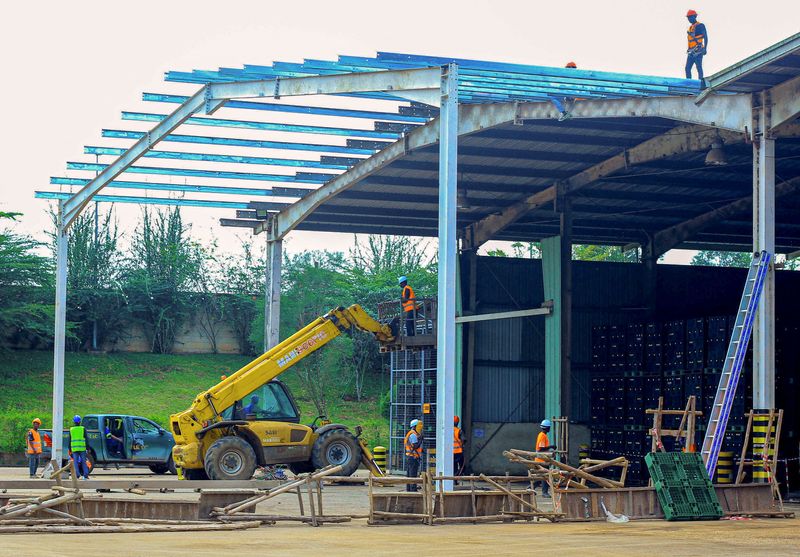By Erikas Mwisi Kambale
BENI, Democratic Republic of Congo (Reuters) - Bottles of beer zip along a conveyor belt in a Brasimba factory which has weathered two deadly Ebola outbreaks and waves of fighting linked to rebel militias active in the nearby forests.
After an initial investment of 125 million euros ($134 million), beer output at the plant in the northeastern Democratic Republic of Congo city of Beni more than tripled to 600,000 hectolitres between 2013 and 2021.
Brasimba, which has been controlled by France's Castel Group since 1995, further expanded production in Beni last year with a second filling line. Along with warehouse expansion, this should help Brasimba manage supply disruptions as the impoverished province grapples with a major offensive by the M23 rebel group.
"The Beni plant has become the hope of this battered region, many people have embraced the project and find it extremely positive to see an international group investing in the region," said Brasimba sales manager Thomas Wybauw.
Workers in high visibility vests load crates onto lorries that will take up to a month to reach their destinations, bumping slowly along the rutted or muddy roads, sometimes having to navigate rebel checkpoints.
"We are unable to access certain areas. We have roads that are sometimes blocked by the poor state of the roads or by the deep insecurity ... this means it takes longer to supply certain zones, or even sometimes prevents it," said Wybauw.
Back in Beni's bars, there is no beer shortage.
"It's a source of pride for us to drink beer made in our own country," said Jean-Marc Wisole, savouring his bottle of Doppel Munich, one of nine types of beer produced at the local plant.

Brasimba's brewery was founded in 1925 and its Beni factory employs around 130 people and a further 180 temporary workers, providing much-needed income in a country where the World Bank estimates 73% of people live on less than $1.90 a day.
($1 = 0.9331 euros)